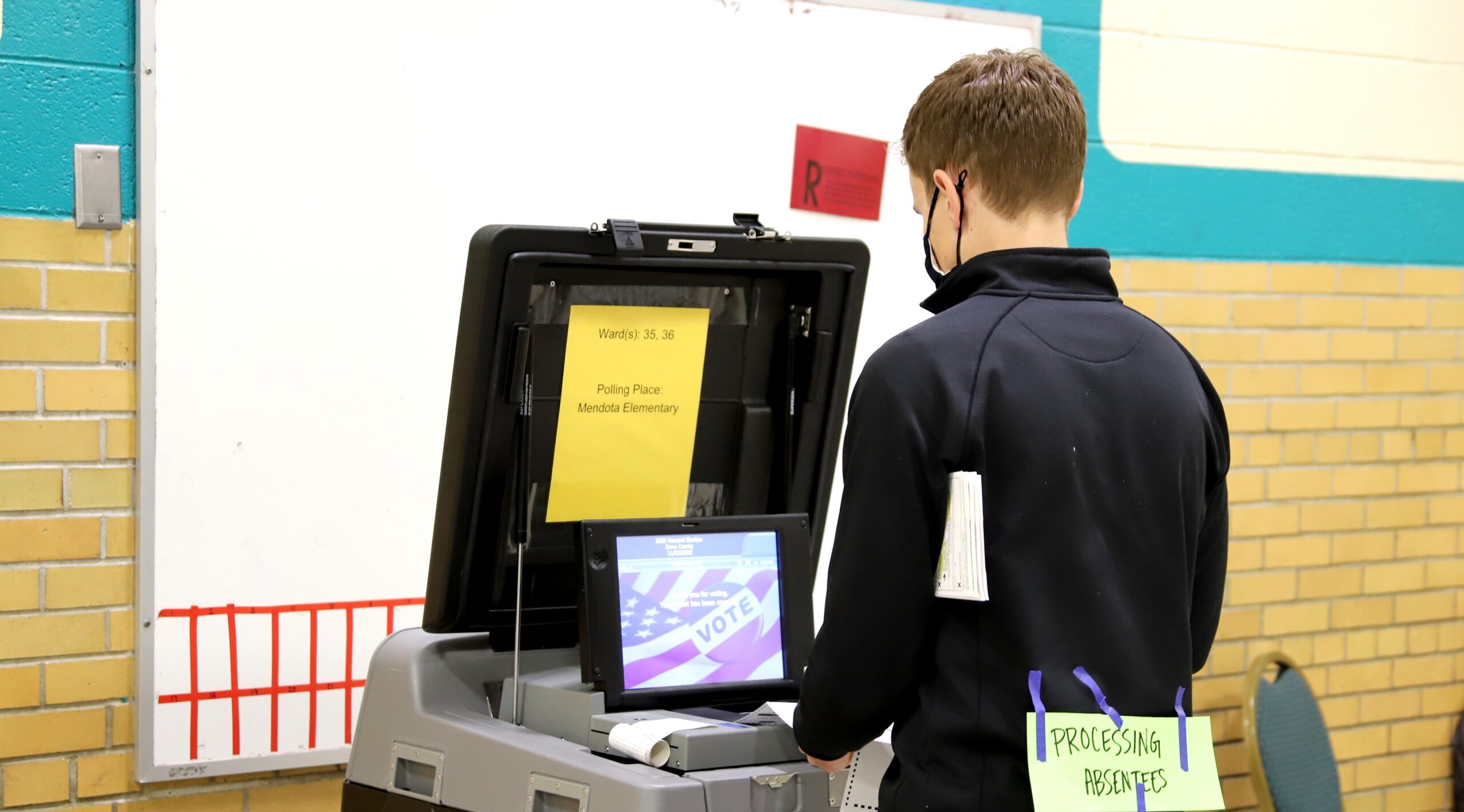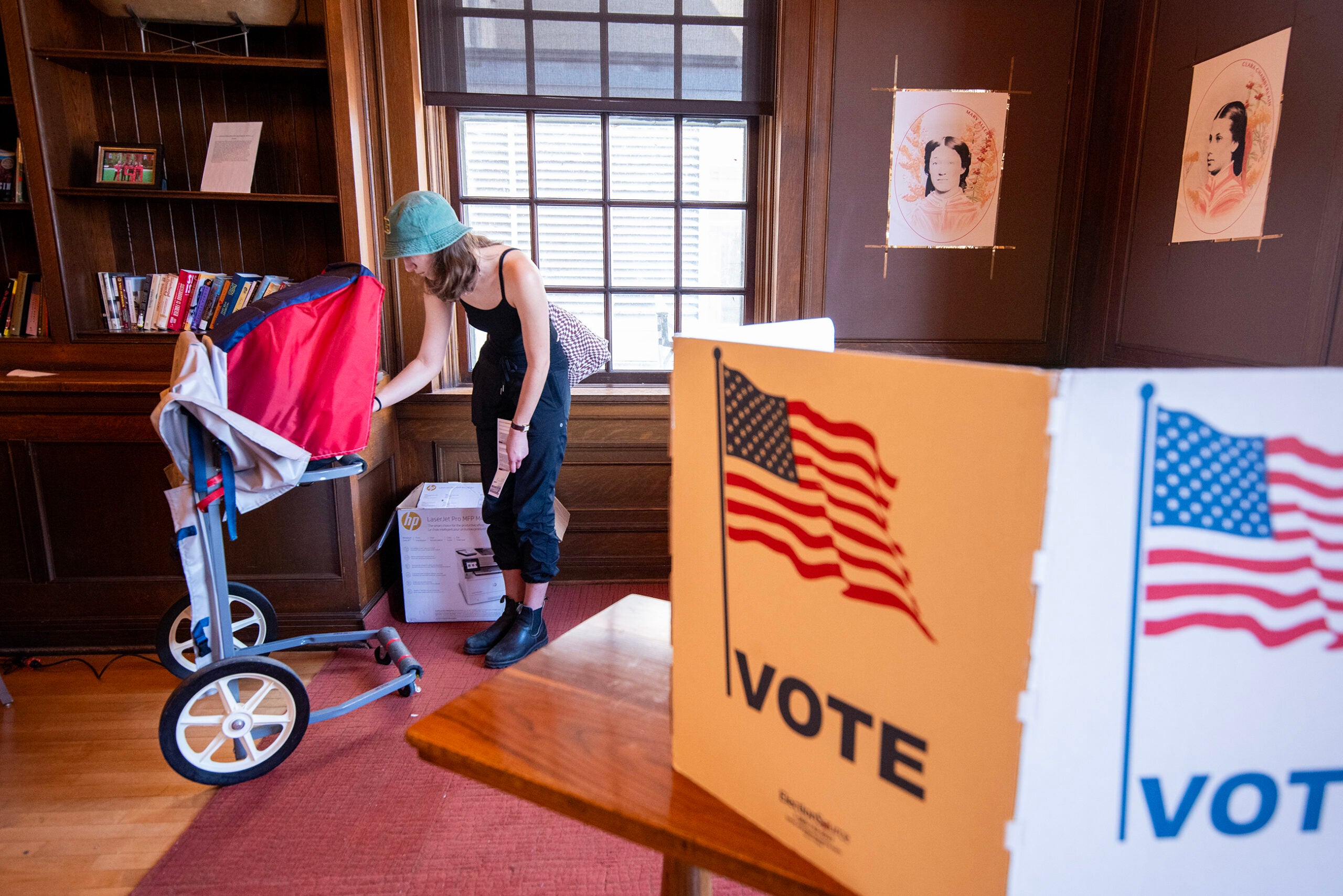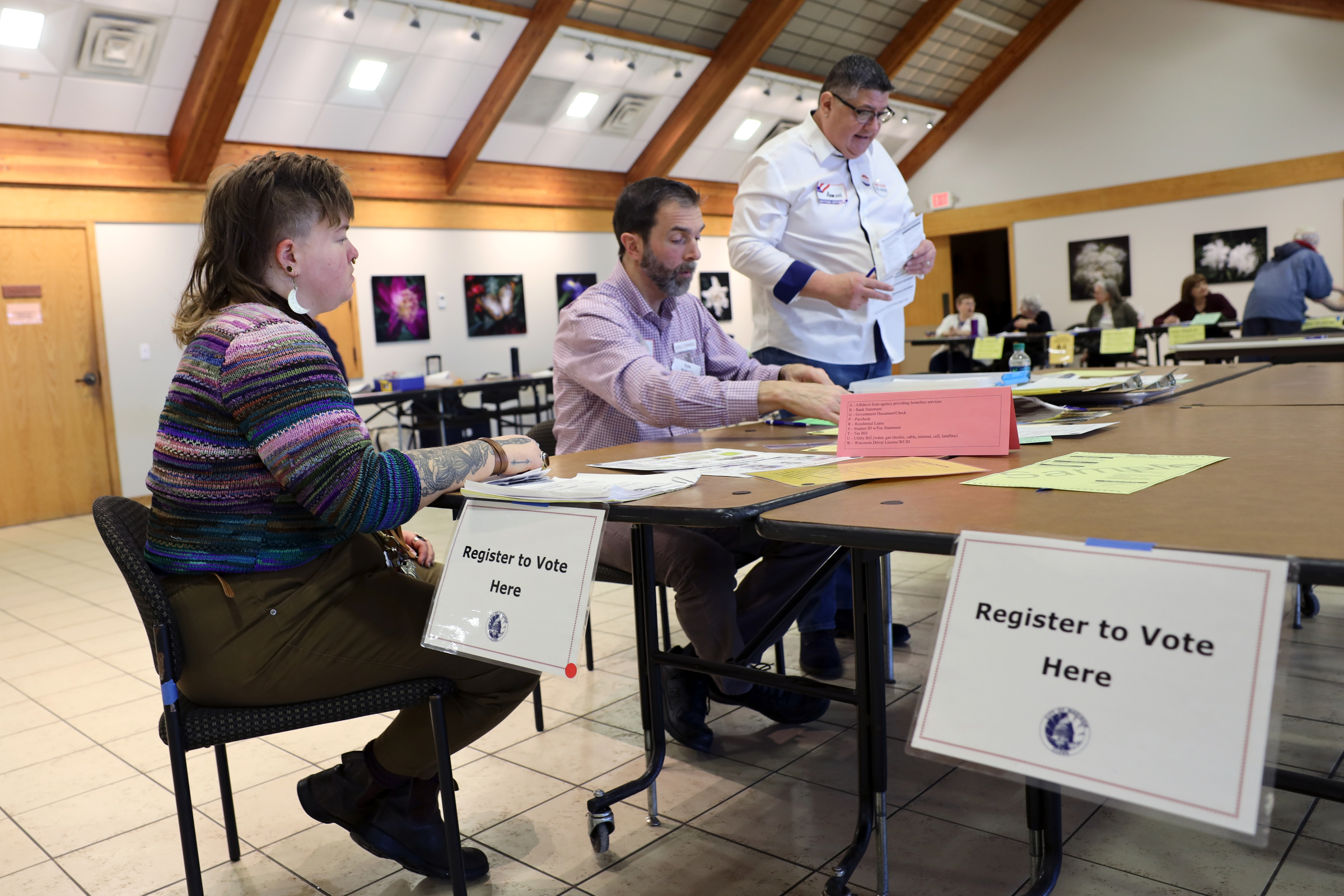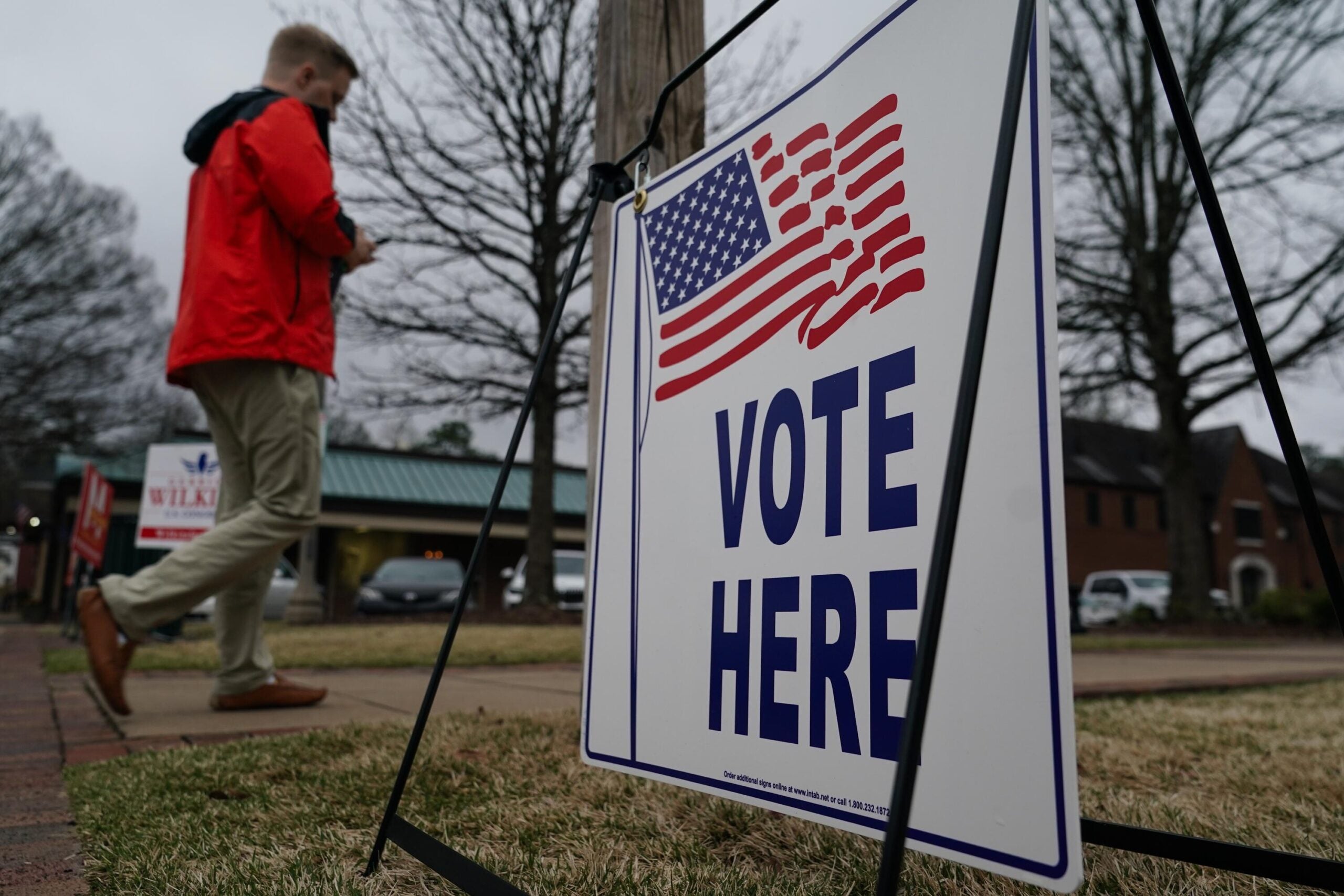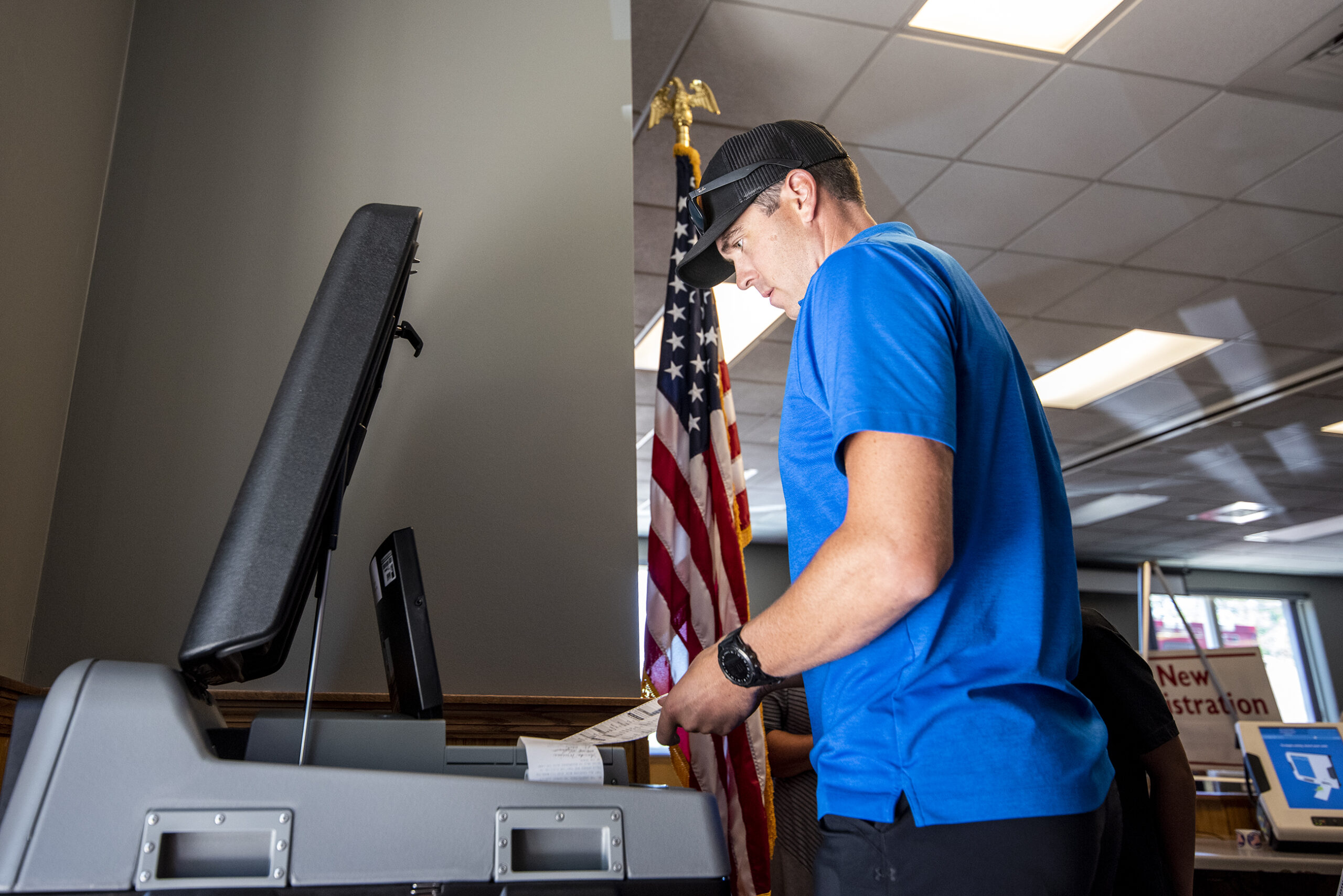The U.S. Department of Justice is suing two towns in northern Wisconsin for not making electronic voting machines available to people with disabilities in this year’s primary elections. While the Rusk County Town of Lawrence has struck a deal with the DOJ, the nearby Town of Thornapple has not.
The DOJ lawsuit, filed Sept. 20, alleges the Thornapple Town Board of Supervisors voted to stop using electronic voting machines during a meeting on June 13, 2023. In this year’s April and August primary elections, the town hand-counted paper ballots instead.
The Town of Lawrence failed to offer an accessible voting machine in the April primary election, according to the complaint.
Stay informed on the latest news
Sign up for WPR’s email newsletter.
That, according to the DOJ, is a violation of the federal Help America Vote Act, which requires at least one electronic voting system at each of a municipalities polling places to accommodate individuals with disabilities.
In a statement, Assistant Attorney General Kristen Clarke of the U.S. Justice Department’s Civil Rights Division said, “Our democracy works when voters with disabilities have the right to vote on the same terms as any other voter.”
“By failing to offer accessible voting systems, Thornapple and Lawrence shirked their responsibilities under the Help America Vote Act to provide equal access to the ballot for all voters,” Clarke stated.
Officials with the Town of Lawrence negotiated an agreement with the DOJ, which is included in the federal court docket. It stipulates that the town will ensure at least one accessible voting machine is available to disabled voters in all future elections. The town is also required to file a certification with the court verifying the machine was used within 14 days of future elections.
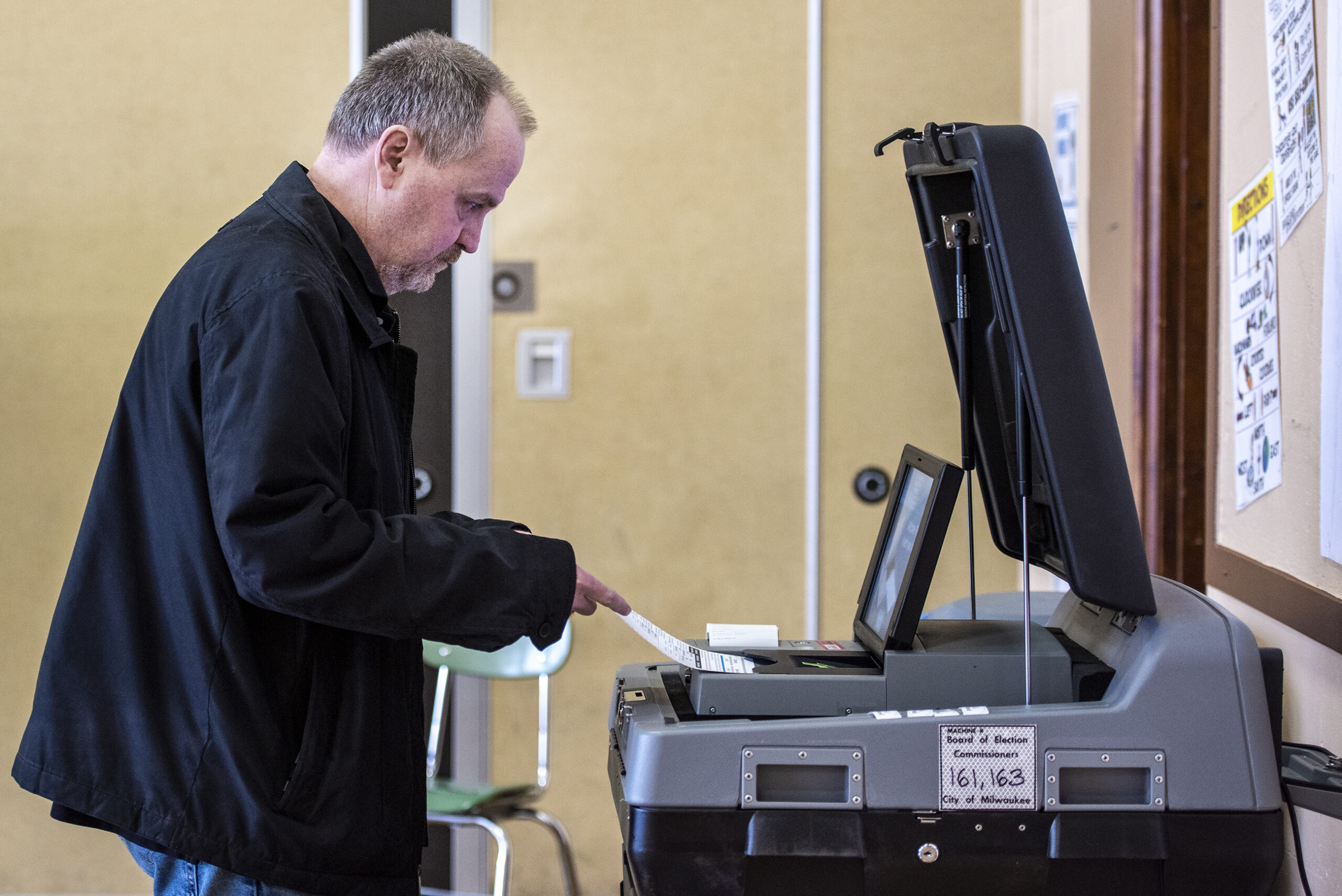
Lawrence Town Clerk Charidy Ludescher did not respond to a message seeking comment for this story.
A statement from Western District of Wisconsin U.S. Attorney Timothy O’Shae said, “Ensuring equal voting access to all citizens, including those voters with disabilities, is a priority of this office.”
“We’re pleased that the representatives of the Town of Lawrence agreed to remedy the violations of federal law, and we will continue to work to protect and vindicate the voting rights of voters with disabilities in Wisconsin,” O’Shae stated.
The docket doesn’t contain any such agreement between the DOJ and the Town of Thornapple.
Meeting minutes from the Thornapple board’s June 2023 meeting, included in the court record, show Town Clerk Suzanne Pinnow cited “the controversial nature of electronic voting machines” as part of the justification for moving to hand-counted, paper ballots. She also claimed municipalities with “less than 7,000 voters” are “not required” to use them. The board agreed and voted to use only paper ballots in future elections.
Pinnow declined a request for comment for this story.
A complaint filed with the Wisconsin Elections Commission on Aug. 27 by Thornapple voter and Rusk County Democratic Party Chair Erin Webster claims Pinnow is wrong on state law. The complaint, drafted on Webster’s behalf by liberal firm Law Forward, argues that while there are exceptions to the voting machine requirement, any municipality that has started using voting machines must get permission from the elections commission before reverting to hand-counted, paper ballots.
Law Forward co-founder Jeff Mandell told WPR that to his knowledge, “the town of Thornapple did not ask or receive permission.”
Pinnow also told federal investigators that town “did not have any electors participate in the April 2, 2024 election that needed ‘assistance’ or had ‘a physical disability.’” Mandell said even if Pinnow’s statement is taken at face value, “it doesn’t mean that there weren’t voters who had difficulty or would have had an easier time accessing their vote, or been able to vote without another person assisting them, if they had this machinery.”
“And No. 2, the fact that there weren’t any voters who requested such assistance at one election really doesn’t tell us about what’s going to happen at the next election, because additional people could turn out to vote who didn’t vote last time,” Mandell said.
In addition to Webster’s WEC complaint, another was filed in late August by Disability Rights Wisconsin. They, along with the federal lawsuit are seeking to require the Town of Thornapple and Town of Lawrence to bring back at least one accessible voting machine each for the upcoming presidential election.
Wisconsin Public Radio, © Copyright 2025, Board of Regents of the University of Wisconsin System and Wisconsin Educational Communications Board.
